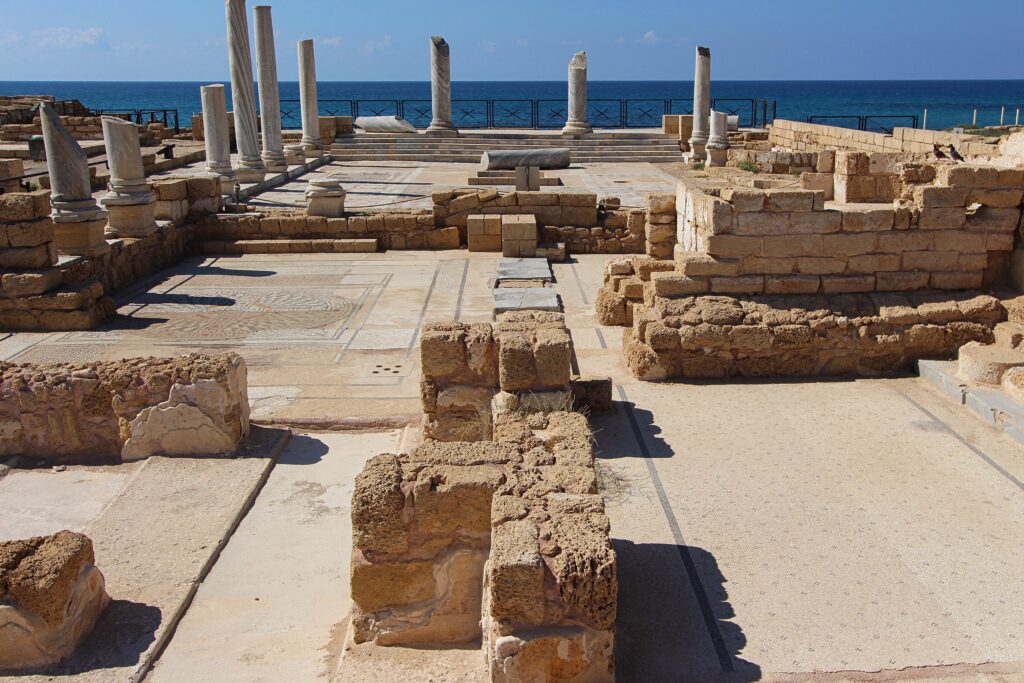
Ceasarea was founded by Herod the Great in 22 BC, and named after Augustus Caesar. A major seaport town of Roman Judea/Palestine. It was on the main road from Tyre (and Damascus) to Egypt, 33 miles (53 km) north of Joppa, and about 60 miles (97 km) from Jerusalem. Caesarea was the Roman Province Capitol and thus the official residence of Pilate, Festus, Felix, and all other Roman prefects and procurators, Acts 23:23, 33; 25:1–13. It was here that Cornelius, the gentile centurion, was baptized by the Apostle Peter – the first gentile baptism, Acts 10:1, 24; 11:11, and where Herod Agrippa (who killed John the Baptist) died, Acts 12:23. Caesarea is also frequently mentioned in connection with Paul’s journeys, Acts 9:30; 18:22; 21:8, 16; 23:23, 33; 25:1, 4, 6, 13.
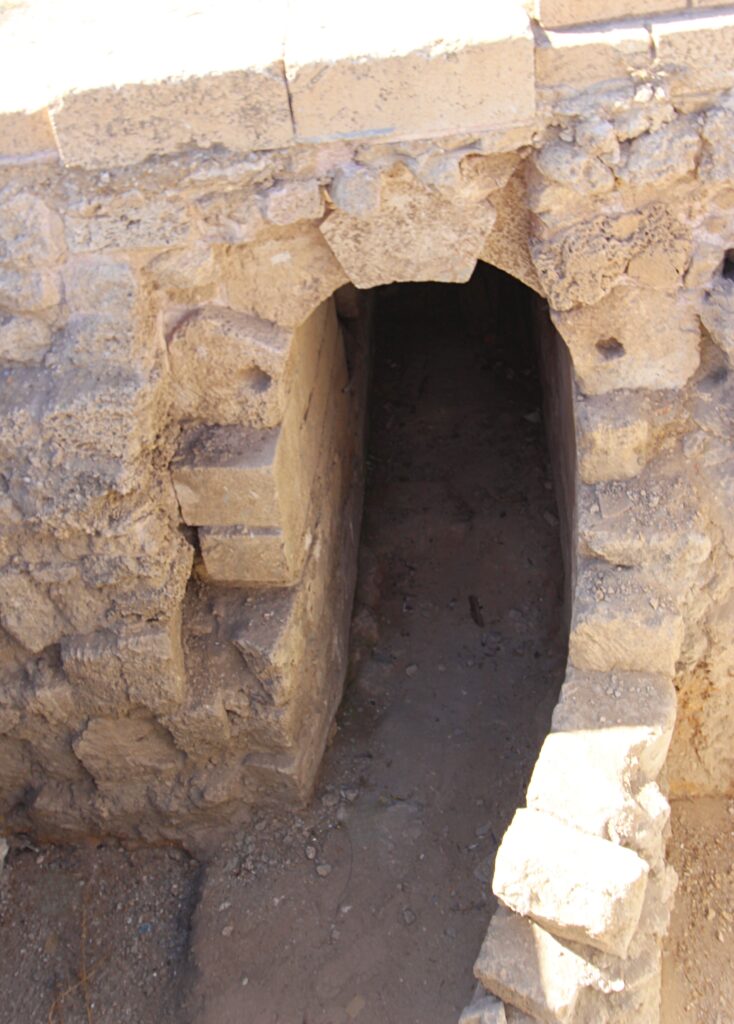
But most famously Ceasarea is where Paul spent 2 years in prison, appealed to Caesar in Rome from here, and made his defense to Festus and King Herod Agrippa II (whose capital was in Ceasarea Philippi). The full story is in Acts chapters 23 to 27. After recounting his conversion on the road to Damascus Paul relates, in the most quoted section of his 2 years at Caesarea:
“Whereupon, O king Agrippa, I was not disobedient unto the heavenly vision: But shewed first unto them of Damascus, and at Jerusalem, and throughout all the coasts of Judæa, and then to the Gentiles, that they should repent and turn to God, and do works meet for repentance. For these causes the Jews caught me in the temple, and went about to kill me. Having therefore obtained help of God, I continue unto this day, witnessing both to small and great, saying none other things than those which the prophets and Moses did say should come: That Christ should suffer, and that he should be the first that should rise from the dead, and should shew light unto the people, and to the Gentiles. And as he thus spake for himself, Festus said with a loud voice, Paul, thou art beside thyself; much learning doth make thee mad. But he said, I am not mad, most noble Festus; but speak forth the words of truth and soberness. For the king knoweth of these things, before whom also I speak freely: for I am persuaded that none of these things are hidden from him; for this thing was not done in a corner. King Agrippa, believest thou the prophets? I know that thou believest. Then Agrippa said unto Paul, Almost thou persuadest me to be a Christian. And Paul said, I would to God, that not only thou, but also all that hear me this day, were both almost, and altogether such as I am, except these bonds.” Acts 26:19-29.
King Agrippa II then indicated that he would have set Paul free except that Paul had appealed to Caesar Nero, who became infamous for killing Christians (including Paul and Peter).
Today, Ceasarea National Park is a major tourist stop on the Mediterranean coast of Israel. The ruins are extensive and include bathhouses, theater, markets, hippodrome and two palaces.
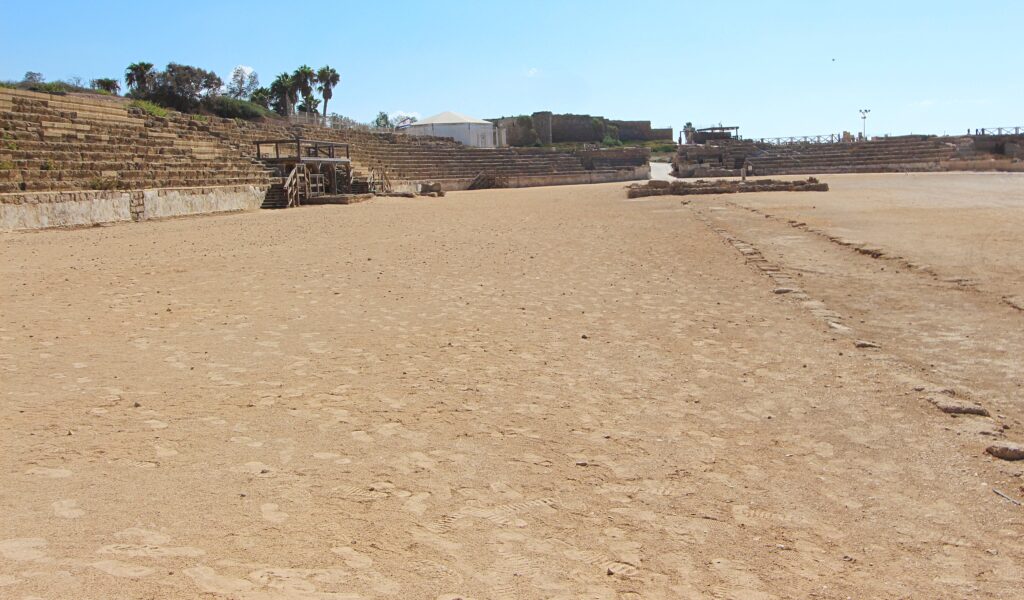
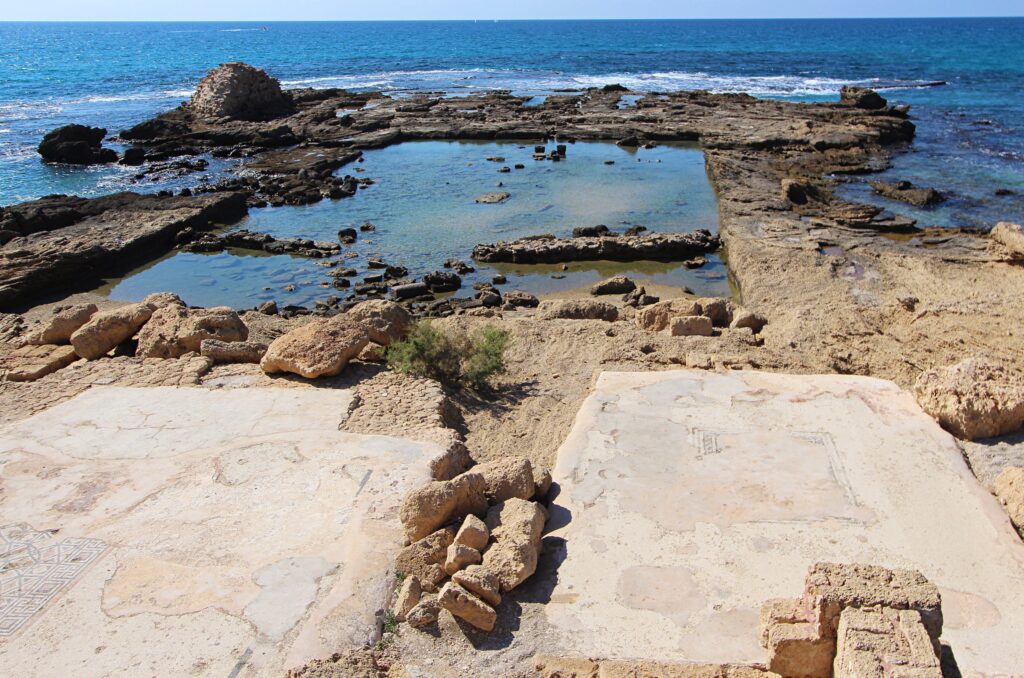
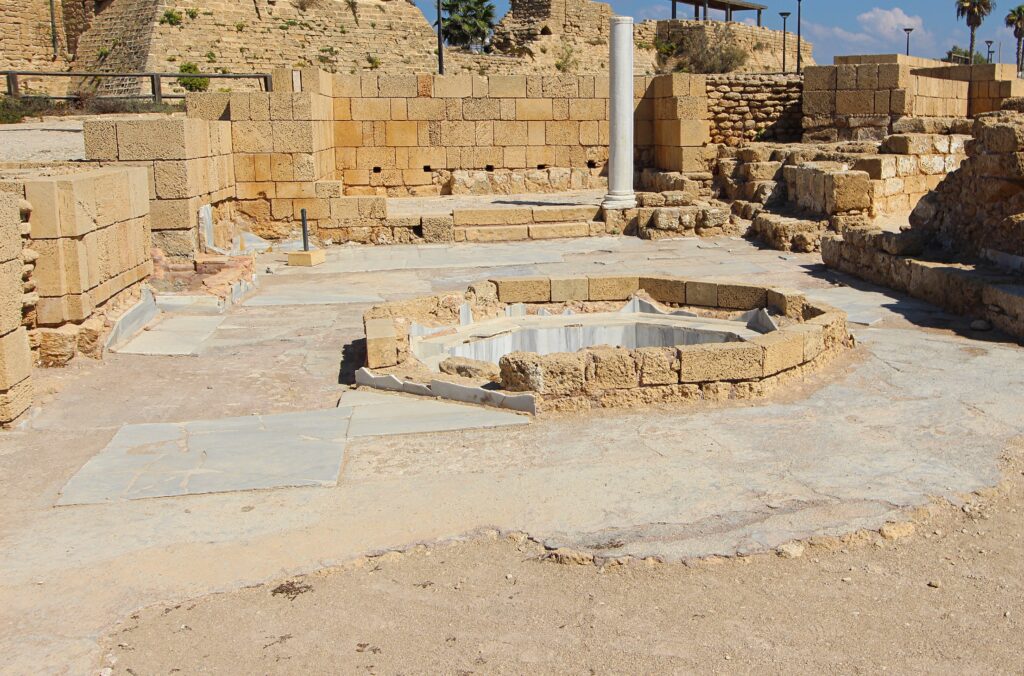
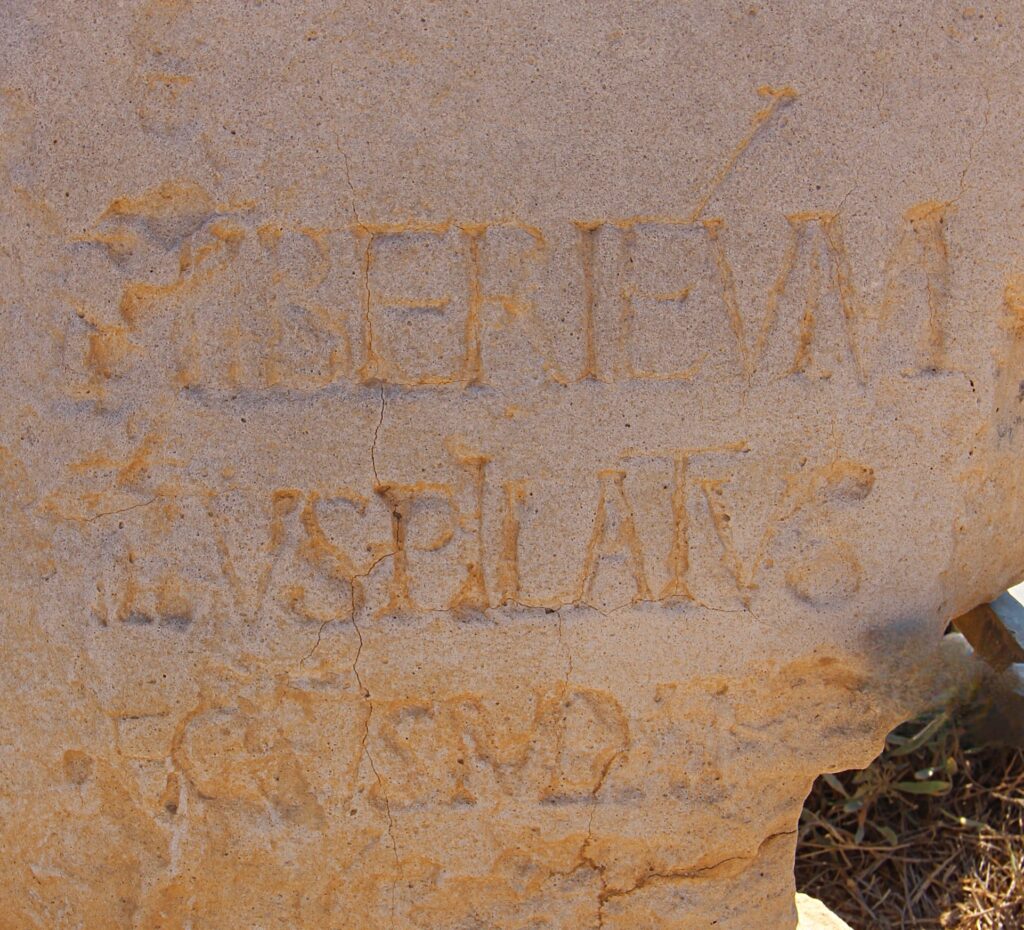
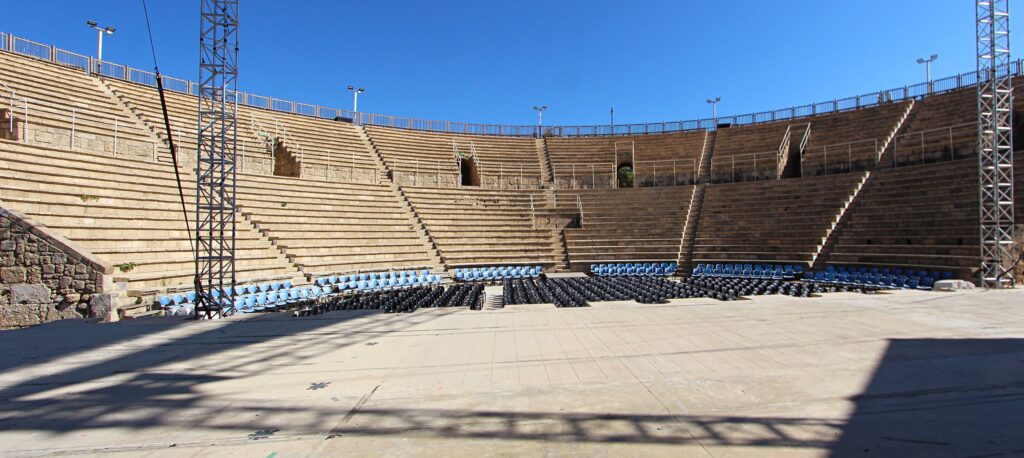
< Previous post on The Knesset, Israel’s Parliament
Next post on John the Baptist’s Home Town: Ein Kerem >
Return to the Home Page